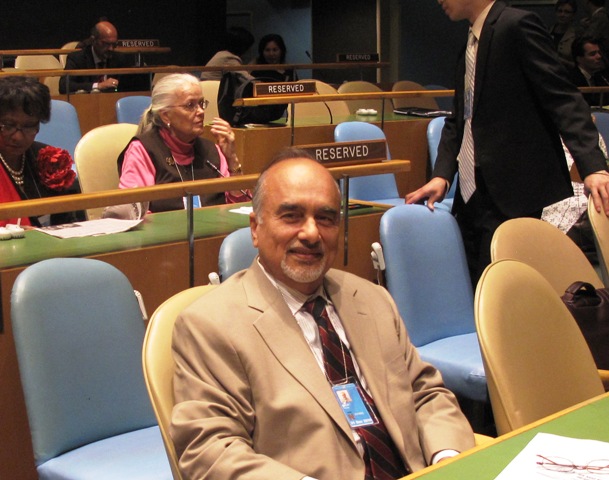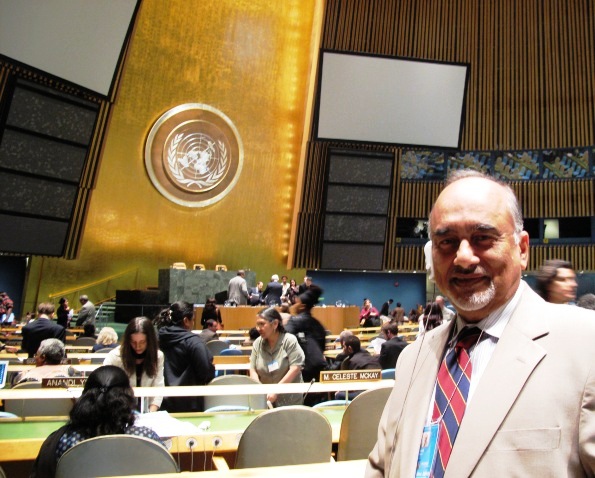ACP Award 2010 e-newsletter
E-newsletter of American College of Physicians (ACP) covering the award for FIMA Save Vision
http://www.acponline.org/about_acp/international/newsletter/july09/im09.htm



Following our participation in IHC and CIMCO seminars in Samarinda- Kalimantan in the far east of Indonesia on June 4-6, 2010, we followed arrangements made by Prof. Jurnalis Uddin, President of YARSI, to attend the ground breaking of the FIMA supported relief project in the earthquake destroyed village Lambeh, district of Pariaman in Sumatra in the far west of Indonesia.
Prof. Jurnalis has been in direct contact with the villagers in the aftermath of the earthquake, and he dispatched the chief architect of YARSI, together with construction workers to the village and started the initial steps.
The villagers were so eager and persistent to receive FIMA delegation, and this was clearly transmitted to us by Prof. Jurnalis Uddin, and we adjusted our schedule to take a local flight back to Jakarta to spend a night in the blessed home of Prof. Juranlis, to take an early flight to Lambeh, Pariaman in Sumatra. The small group included Dr. Abdel Karim Abu Samaha, director of hospital at JUST University in Yemen (expert lecturer in hospital administration and accreditation), Prof. Jurnalis Uddin and my humble self.
From the airport, a YARSI car took us in the 2 hour drive to the village, where we were touched by the warm reception of the villagers. Most men, women and children formed a large reception in their local traditional dresses, singing religious songs accompanied by drums of local traditions ... all amidst the destruction left by the earthquake.
The ceremony included Qur’an recitation, religious songs and speeches by local representatives of villagers. Prof. Jurnalis Uddin and myself made short speeches at the site of the construction project. Then we toured the construction area, and participated in the ceremonial placement of stone and cement in the ground breaking.
The villagers invited us to lunch prepared by many of them in their homes. The group lunch was served on the ground of the area of the earthquake destroyed Masjid.
I was personally touched by this group of villagers, in a remote, poor, destroyed district of Sumatra, when they chanted while I alluded to Al-Aqsa Mosque, and the Gaza plight at the time when several Indonesians were injured when the Freedom Flotilla was attacked barbareously in international waters near Cyprus. This proved that our peoples, in cities, villages, jungles and deserts are eternally tied up as one Ummah.
The accompanying photos may add dimensions to this relief trip.




For more photos: Visit of FIMA Executive Director to Indonesia Photo Gallery
Wassalam
Sincerely Yours,
Aly A. Mishal MD, FACP
FIMA Executive Director
Dr. Parvaiz Malik, President of FIMA attended a special ‘Informal Interactive Hearings of the United Nations General Assembly with NGO’s, civil society organizations and private sector’, in New York on June 14-15, 2010. In order to provide input to the preparatory process for the ‘MGD summit’, a high-level plenary meeting on 20-22 September 2010, the UN General Assembly, in resolution A/RES/64/184 asked the President of its 64th session, H.E. Dr. Ali Abdussalam Treki, to convene this informal hearings. The outcome of the hearings (a summary by the President of General Assembly) will thus constitute a formal input into the political process leading to the summit itself. FIMA attended the meeting as an NGO observer. The themes of the four sessions were as follows;
- Building a better tomorrow: local actions, national strategies and global structures.
- Equal and inclusive partnerships: Accountability in the fight against poverty.
- Sustaining development and withstanding crises.
- From voice to policy: 1660 days left.
In September 2000, building upon a decade of major United Nations conferences and summits, world leaders came together at the United Nations Headquarters in New York to adopt the United Nations Millennium Declaration, committing their nations to a new global partnership to reduce extreme poverty and setting out a series of time-bound targets - with a deadline of 2015 - that have become known as the Millennium Development Goals. The eight Millennium Development Goals (MDGs) – which range from halving extreme poverty to halting the spread of HIV/AIDS and providing universal primary education, all by the target date of 2015 – form a blueprint agreed to by all the world’s countries and the entire world’s leading development institutions. They have galvanized unprecedented efforts to meet the needs of the worlds poorest.


"Eradicating extreme poverty continues to be one of the main challenges of our time, and is a major concern of the international community. Ending this scourge will require the combined efforts of all, governments, civil society organizations and the private sector, in the context of a stronger and more effective global partnership for development. The Millennium Development Goals set timebound targets, by which progress in reducing income poverty, hunger, disease, lack of adequate shelter and exclusion — while promoting gender equality, health, education and environmental sustainability — can be measured. They also embody basic human rights — the rights of each person on the planet to health, education, shelter and security. The Goals are ambitious but feasible and, together with the comprehensive United Nations development agenda, set the course for the world’s efforts to alleviate extreme poverty by 2015. "
United Nations Secretary-General BAN Ki-moon
Warning: count(): Parameter must be an array or an object that implements Countable in /home/fimawebn/public_html/cms/templates/gk_game_magazine/html/com_k2/templates/default/user.php on line 179
